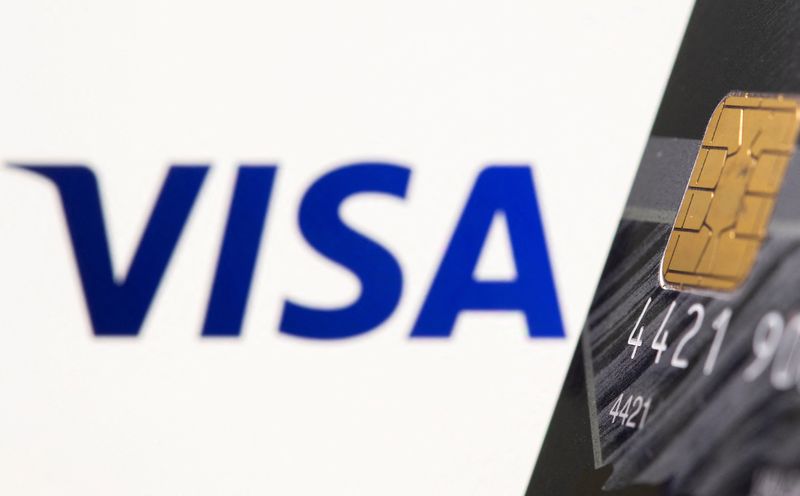The Paris Olympics kicked off with an extravagant opening ceremony on Friday night when an armada of boats carried 10,500 athletes along the Seine — the first outdoor version of the spectacle that was expected to be watched by a billion people.
Earlier, a shadow was cast over the event by an act of criminal sabotage that hit France’s high-speed rail network in the early hours of the morning causing nationwide transport chaos. Heavy rain then began to fall about 30 minutes into the three-hour show, a nightmare scenario for the planners of the theatrical performance that featured a massive cast of dancers, two orchestras and a clutch of pop stars, including Lady Gaga doing a cabaret-tinged song.
Before the ceremony, interior minister Gérald Darmanin said: “We are ready for this magnificent event,” adding that no specific threats had been detected. The railway sabotage would “not have direct consequence on the Olympics or the ceremony”.

By mid-afternoon long queues had formed for ticket holders to get into the highly secured perimeter along the Seine river where 320,000 spectators were expected along the medieval-era cobblestone quays. The format of the event required heavy security: 45,000 police were deployed on the ground and in the air, using helicopters, drones and snipers positioned on roofs.
The weather also tested the dozens of experienced ship captains powering the parade, who navigated at precisely the right speed to keep the show on line. Some spectators fled the quays for cover as rain poured down.
President Emmanuel Macron hosted more than 100 heads of state at Trocadero plaza across the river from the Eiffel tower where the athletes disembarked for a final parade and a performance by francophone favourite Céline Dion. Jill Biden, wife of the US president, and other leaders attended a reception at the Elysée palace beforehand.

The idea for such an ambitious opening was the brainchild of one man, Thierry Reboul, an event specialist known for punchy marketing stunts, but pulling it off it needed more than 15,000 performers, technicians and firework specialists.
The performance featured ballet dancers on the roof of the Louvre, while hundreds of modern dancers and breakdancers performed along the quays and on some of the boats. Performers were clad in handmade outfits stitched by French couturiers, and LVMH’s Louis Vuitton trunk suitcases were prominently displayed in a lengthy segment. Bernard Arnault’s LVMH was an Olympics sponsor.
Organisers had to scale back some elements, such as BMX riders set to do tricks on a ramp because rain made it too slippery.

When Reboul pitched the idea for the river ceremony to Tony Estanguet, head of the Paris organising committee, the two-time gold medal winner reacted with stupor that quickly became enthusiasm. “It will be ambitious, audacious and totally crazy,” said Estanguet, recalling the moment.
Reboul said the idea came to him on a walk along the Seine, the snaking river whose banks were chosen by a Gallic tribe called the Parisii to found a settlement about two thousands years ago. He told himself: “It should be here, of course it should be here, and nowhere else.”
The organisers hired Thomas Jolly, a 42-year-old theatre director known for a musical called Starmania, who started imagining how to convey the spirit of France from literature and culture to history. “I’m used to designing performances on a stage, and this time the entire city was my canvas,” he told reporters earlier this week.

Jolly hired a team he has long worked with — a musical director, choreographer and a costume designer, all renowned in their fields — and also included author Leila Slimani, scriptwriter Fanny Herrero, who created the show Call My Agent!, and others to help him write the 12 tableaux that make up the ceremony.
Before they started writing, they took long walks along the Seine for inspiration and researched the history of its bridges, such as the oldest, Pont Neuf, finished under King Henry IV in 1607, and the Pont d’Austerlitz, commissioned by Napoleon Bonaparte, from which the parade will begin.
“We drew on the past of each site and monuments: almost each stone tells something about our history of France, of the history of Paris, a history which is connected to the world,” he said.
But Jolly and Estanguet did not want the theatrics to overshadow the athletes, instead putting them at the centre of it by giving them the best spots to view the show — the decks of the boats on the river.
“The athletes are the heroes of the show,” said Estanguet.
Although officials remained vague about the price, French media reported that the ceremony cost about €120mn, roughly four times that of the opener of the London 2012 Games. The overall cost for the Paris Games, which was pitched as a greener edition because little new infrastructure was built, is expected to reach €9-10bn, according to the national auditor. About one-third of that will be paid for by sponsors.
Jolly’s show was filled with memorable, kitschy moments: a hooded figure leaping across the zinc roofs of Paris, drag queens dancing to electro, beheaded royals of the French revolution set against heavy metal music, and a silver horse with an armour-clad rider gliding down the Seine.

Cheers rose when France’s beloved footballer Zinedine Zidane passed the torch to tennis champion Rafel Nadal.
The spectacle climaxed with an elaborate light show beaming out from the Tour Eiffel before a final flame relay to the Louvre led to a hot air balloon ascending into the night sky bearing a fiery Olympic cauldron.
Framed by the Eiffel tower, Canadian singer Céline Dion, in her first performance in years because of illness and wearing a white, beaded dress featuring 500m of fringe custom made by Dior, belted out Edith Piaf’s Hymne à l’amour.
“I declare the Paris games open,” said Macron.
Additional reporting by Adrienne Klasa






















































